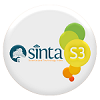ISLAMIC EDUCATION AND LIBERATION FROM FEUDALISM
Abstract
In the religious dimension, the main purpose of Islam is to develop awareness and understanding about the meaning and of human’s life in relation to God. Meanwhile, in terms of social dimension, the purpose of Islamic Education is to develop understanding of harmonious relationship, either between human beings or between human being with the environment. In this context, human beings hold the responsibility for restraining a society from obstinacy, inanity, and anarchism. In this respect, the concept of liberalism in Islamic Education is to place teachers and students in a harmonious relationship. This relationship is to create learning atmosphere which is based on the principle of democratic and two-way relationship.
Keywords
Full Text:
PDFReferences
‘Abd.Al-Baqiy. (t.t). Muhammad Fu’ad. Al-Mu’jam li Alfazh Al-Qur’an al-Karim. [t.t]: Dar al-Sya’b,
Ahmad, H. A. (2005). Pendidikan Agama dan Keagamaan. Jakarta: Balai penelitian dan pengembangan agama.
al-Abrasyiy, M. ‘A. (1975). At-Tarbiyah al-Islamiyah wa Falasifatuha (Mishr: ‘Isa al-Babiy al-Halabiy).
al-Ahwaniy, A.F . (t.t.). At-Tarbiyah fil Islam. Kairo: Dar al-Ma’arif.
al-Qardhawiy, Y. (1977). Iman dan kehidupan, (terj.) H. Fachruddin Hs., dari judul Al-Iman wa Al-Hayat. Jakarta: Bulan Bintang.
al-Qardhawiy, Y. (1980). At-Tarbiyah al-Islamiyah wa Madrasah Hasan al-Banna. Penerjemah: H. Bustami A. Gani dan Zainal Abidin Ahmad, Pendidikan Islam dan Madrasah Hasan al-Banna. Jakarta: Bulan Bintang.
Baheshti, S.M.H. (2002). God in The Quran, terj: Apep Wahyudin, Selangkah Menuju Allah: Penjelasan Al-Qur’an tentang Tuhan. Jakarta: Pustaka Zahra.
Budiman, M. N. (1996). Pendidikan Moral Qur’ani, Strategi Belajar-Mengajar dan Evaluasi pada MAN Se Daerah Istimewa Aceh, Disertasi (Yogyakarta: IAIN Sunan Kalijaga.
Friere, P. (1995). Pendidikan Kaum Tertindas. Jakarta: LP3ES.
H.M. Arifin. (1996). Ilmu Pendidikan Islam. Jakarta: Bumi Aksara.
Langgulung, H. (1985). Pendidikan dan Peradaban Islam. Jakarta: Pustaka al-Husna.
Marsiy, M. M. (t.t). At-Tarbiyah al-Islamiyah Ushuluha wa Tathawwuruha fi al-Bilad al-‘Arabiyah, Kairo: Alam al-Kutub.
Qothani, M.S. (1994). Memurnikan La’ilaha illa-Allah. (Terj. Abu Fahmi). Jakarta: GIP.
Rahardjo, M. D. (1985). Insan Kamil, Konsepsi Manusia Menurut Islam. Jakarta: Grafiti Pers.
Rais, A. (1989). Cakrawala Islam antara Cita dan Fakta. Bandung: Mizan.
Sabiq, S. (1982). Al-‘Aqaid al-Islamiyah, terj.: Moh. Abdai Rathomy, Aqidah Islam Pola hidup manusia beriman. Bandung: Diponegoro.
Shihab, M. Q. (1992). Membumikan Al-Qur’an: Fungsi dan Peranan Wahyu dalam Masyarakat. Bandung: Mizan. Hal. 177-178. Lihat pula, Ahmad Mushthafa al-Maraghiy. Tafsir al-Maraghiy, (Mishr: Mushthafa al-Babiy al-Halabiy wa Auladin, 1974).III.
Suryabrata, S. (1990). Psikologi Perkembangan. Yogyakarta: Rake Sarasin.
DOI: https://doi.org/10.17509/historia.v11i1.12129
Refbacks
- There are currently no refbacks.
Copyright (c) 2025 Historia: Jurnal Pendidik dan Peneliti Sejarah
INDEXED
TOOLS

This work is licensed under a Creative Commons Attribution-ShareAlike 4.0 International License.
Alamat Redaksi: Gedung Numan Soemantri, FPIPS UPI, Departemen Pendidikan Sejarah, Lantai 2, Jl. Dr. Setiabudhi No 229 Bandung, 40154






